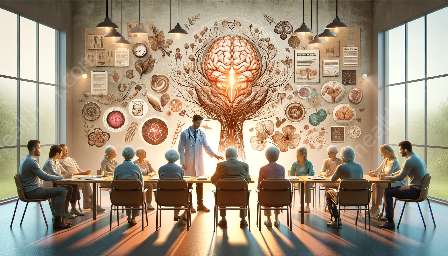HIV/AIDS is a complex health condition that has a significant impact on individuals and communities worldwide. In this comprehensive guide, we will explore the causes, symptoms, prevention, and treatment of HIV/AIDS, and understand its implications on overall health.
Understanding HIV/AIDS
HIV, or Human Immunodeficiency Virus, is a virus that attacks the body's immune system, specifically targeting CD4 cells, which are crucial for fighting off infections. As the virus weakens the immune system, it becomes increasingly difficult for the body to combat infections and diseases. AIDS, or Acquired Immunodeficiency Syndrome, is the final stage of HIV infection, characterized by severe damage to the immune system.
Causes of HIV/AIDS
HIV is primarily transmitted through unprotected sexual intercourse, sharing contaminated needles, and from mother to child during childbirth or breastfeeding. Understanding the modes of transmission is crucial for preventing the spread of the virus.
Symptoms of HIV/AIDS
Many individuals infected with HIV may not display any symptoms for several years. However, as the virus progresses, symptoms such as fever, fatigue, swollen lymph nodes, and recurrent infections may become apparent. In the later stages of HIV infection, symptoms of AIDS, including weight loss, night sweats, and opportunistic infections, may develop.
Prevention of HIV/AIDS
Prevention of HIV/AIDS primarily involves adopting safe sexual practices, such as using condoms consistently and getting tested regularly. Additionally, avoiding sharing needles and ensuring proper medical care during pregnancy can significantly reduce the risk of transmission.
Treatment of HIV/AIDS
Advances in medical research have led to the development of antiretroviral therapy (ART), which can effectively control the virus and prevent the progression to AIDS. Early diagnosis and prompt initiation of treatment are essential for managing the condition and improving quality of life for individuals living with HIV.
The Impact of HIV/AIDS on Health
HIV/AIDS not only affects the physical health of individuals but also has significant implications for mental and emotional well-being. The stigma associated with the condition can lead to social isolation and discrimination, impacting mental health and overall quality of life.
HIV/AIDS also poses challenges in terms of access to healthcare, medication, and social support, particularly in resource-limited settings. Addressing these barriers is essential for ensuring that individuals living with HIV/AIDS can access the care and support they need to manage their health effectively.
Managing HIV/AIDS as a Health Condition
Effective management of HIV/AIDS involves a holistic approach that encompasses medical treatment, mental health support, and access to community resources. Providing education and raising awareness about HIV/AIDS can help combat the stigma and discrimination associated with the condition, promoting a more supportive and inclusive environment for individuals living with HIV/AIDS.
Empowering individuals with the knowledge and resources to manage their health effectively can positively impact their overall well-being and contribute to a healthier community. By promoting prevention, early diagnosis, and comprehensive care, we can work towards creating a future free from the burden of HIV/AIDS.















































